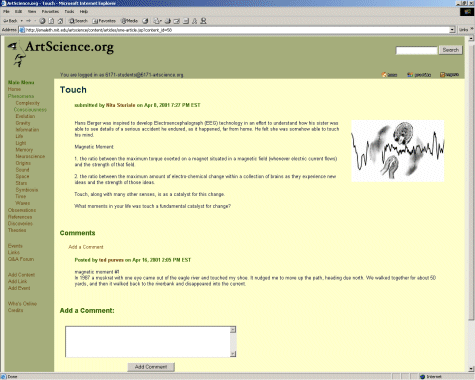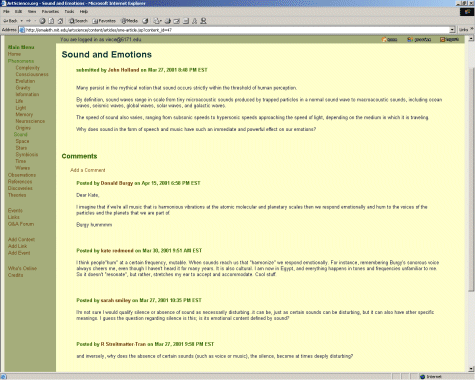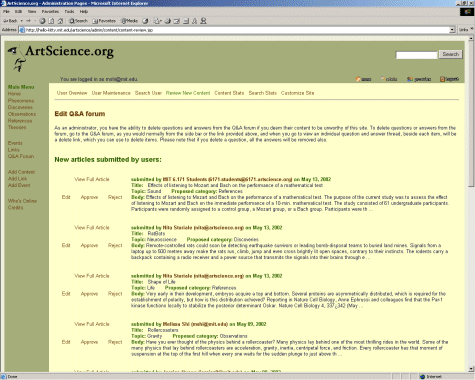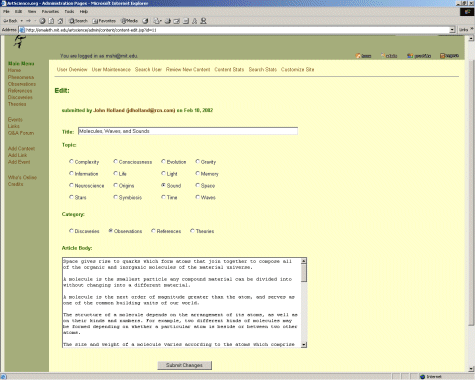

|

A Discussion About Touch

A Discussion about Sounds and Emotions
|
User FeaturesFrom the Artscience.org welcome page, users can follow links to login to the site, view articles posted in various natural phenomena topics, view links, events, or questions and answers, contribute new content to the site, give feedback to the administrators of the site, and view information about the history of the site.Discussion mostly occurs around articles, but links and events may also be discussed. Members may submit articles (which may optionally include an image) about various natural phenomena topics. Members may also submit related links and events that may be of interest to other members, and they may add their thoughts about articles, links, events, or comments other members have submitted. A question and answer forum is provided to answer any logistical questions about the site, for example, questions about how to do something on the site or comments about improvements that could be made. Users can also ask questions of each other to find collaborators for a project, determine where to begin a journal search, etc. Each member has a profile that can be updated with their homepage url, a short bio, and an image. A member can elect to show his profile to all visitors or only to other members of the site. Each time a member's name appears on the site, it is a link to that member's page, which will show his profile (if he permits others to view it) and links to all contributions he has submitted to the site. Visitors may search through content or members of the site. The search results will return a listing of any articles, links, events, comments, questions, answers, or users that matched the query. Users may also limit searches to only specific parts of the site or content that has been submitted within a certain time frame. |
Administrator ExperienceAdministrators are divided into 3 classes: Moderators, Editors, and Admin.The primary administrative task is managing content for the site. All articles on the site must be approved by an Editor or Admin before it is published on the site. The Editor or Admin may choose to approve or deny each article for publication. If an article is denied for publication, the administrator may choose to also optionally give a reason for denial. An email is then sent to the author of the article and he may choose to edit and resubmit it for reconsideration. Editors and Admins may also edit articles before or even after approving them. All other content (links, events, q&a) is automatically approved and published. However, all administrators may choose to delete a post at a later date if he feels it is not constructive towards the mission of the site. Moderating the forum by deleting such submissions is a Moderator's primary ability. The rest of the administrator functions only apply to Admins. Admins may view stats about various areas of the site. Search stats tell the admin which search strings have been popular among users. How many searches have been made? What search queries are being made? What are the most popular searches over time or during the last several days? What searches have been returning no matches? Content stats tell the admin about the size and structure of content on the site. How many articles have been submitted to date? How many comments/links/events/etc? What about activity during the last few days or weeks? What is the breakdown of articles among the different topics? User stats tell the admin about the overall user activity on the site. How many registered users does the site have? How many registered between so and so date? How many have logged in during the last 24 hours, the last few days? How many have contributed? What parts of the site are they contributing to? Admins can add, delete, or modify the topics and categories. Admins may also update text for static parts of pages such as the credits and welcome page. |

Reviewing New Content

Editting Content
|